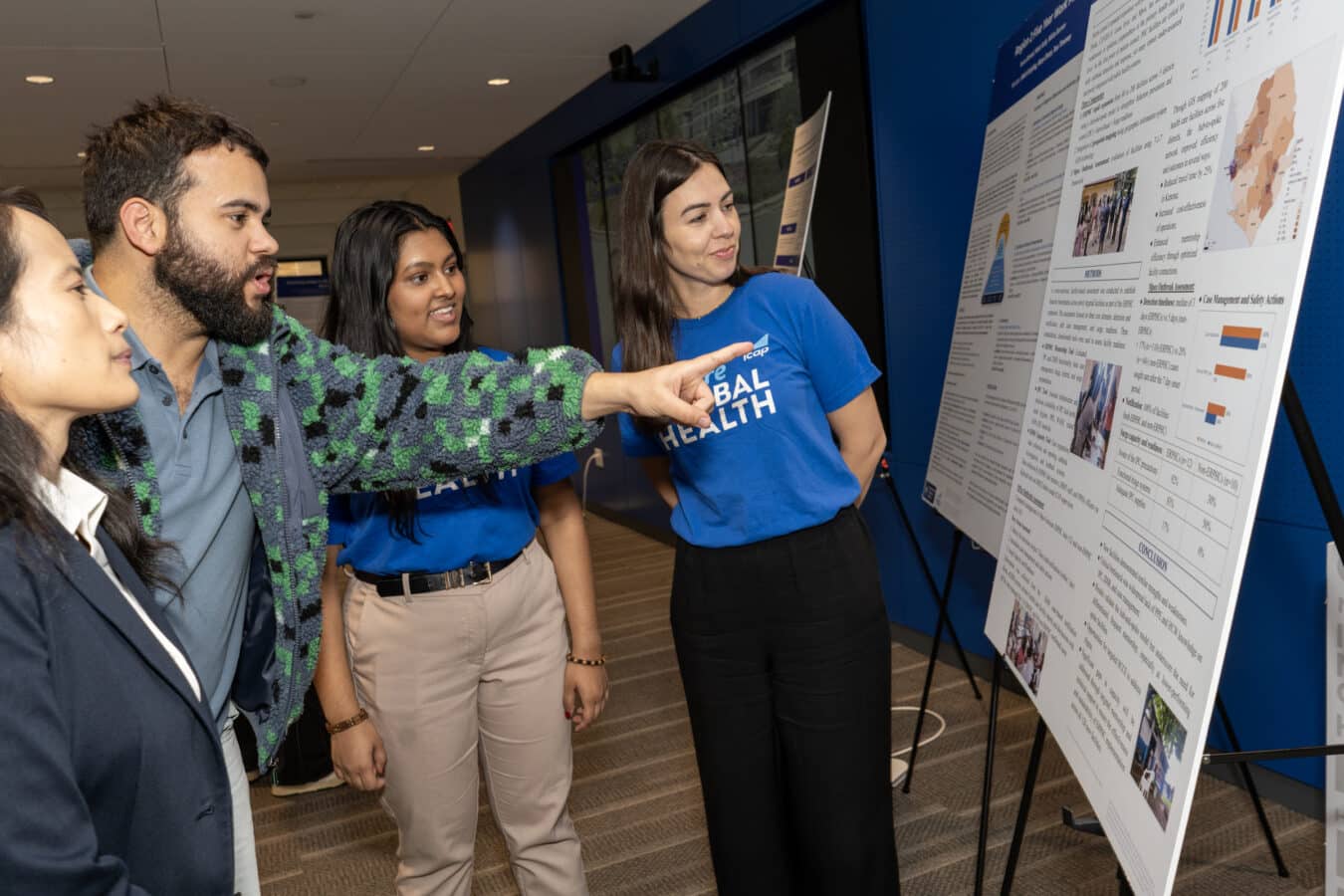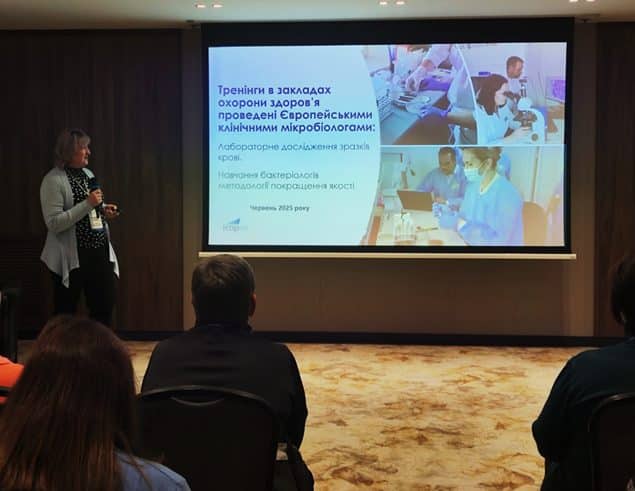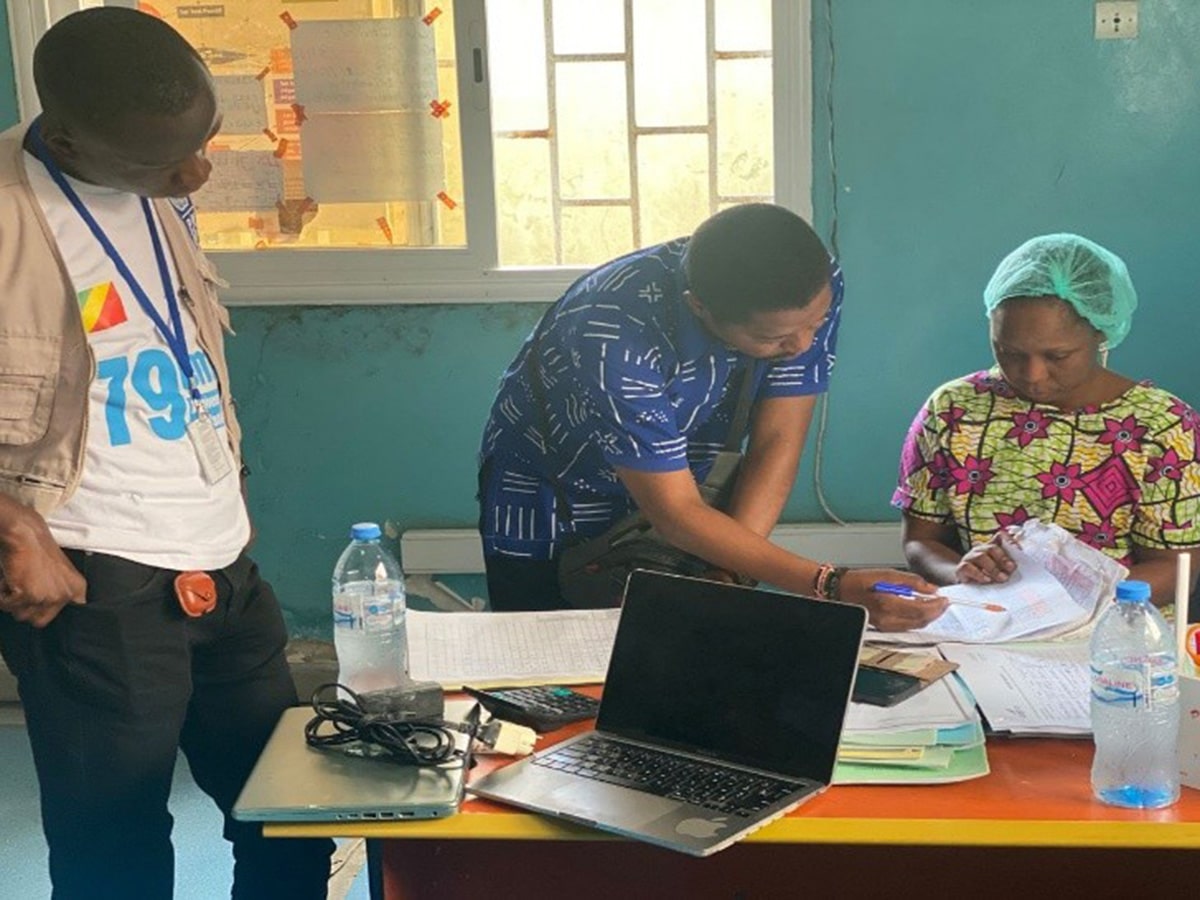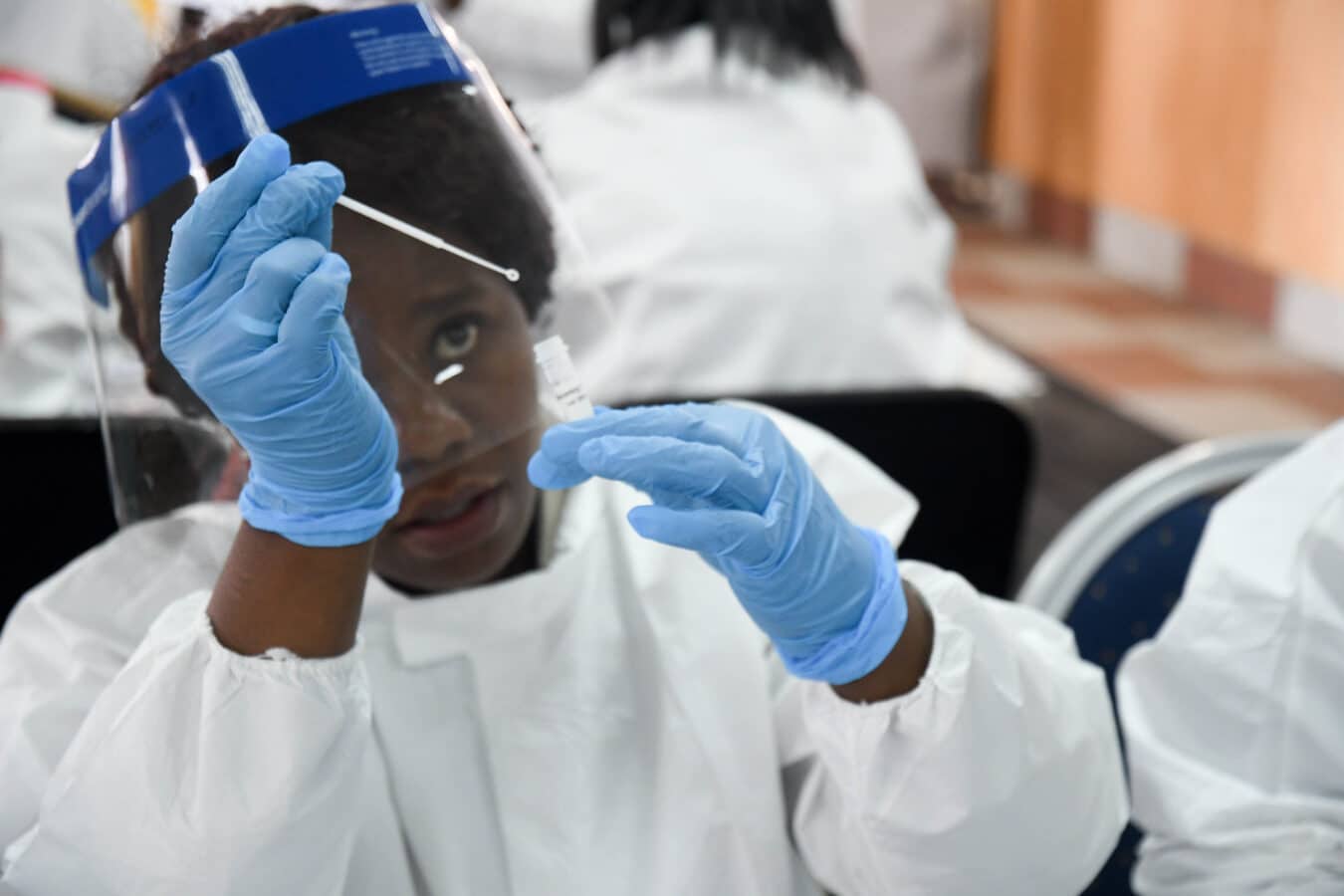On February 18, 2025, ICAP at Columbia University director Wafaa El-Sadr presented at the annual John Lindenbaum lecture series, exploring the public health triumph of the progress toward HIV epidemic control, how to sustain its momentum, and lessons learned that could be applied to other global health threats.
El-Sadr’s presentation “Can HIV Transform Global Health?” first traced the HIV/AIDS epidemic from the 1980s, outlining the challenges sub-Saharan Africa faced in accessing antiretroviral therapy and other health resources, resulting in millions of new HIV infections. With the onset of reduced medication prices, increased foreign aid, and the input of local communities, sub-Saharan Africa began to see major improvements in HIV prevention, care, and treatment beginning in the early 2000s. While remarkable progress has been made in confronting the global HIV epidemic, with notable decreases in mortality, the HIV epidemic is certainly not over – and the threat of other health challenges loom large.
El-Sadr remarked that lessons learned from the HIV epidemic – most notably, addressing bottlenecks at every level of a health system – could be used to address these emerging health threats.
“You have to go beyond ‘the magic bullet’,” El-Sadr said, reflecting on how treatment is not the only important factor in addressing health challenges. “You have to think of all different components of the health system.”
El-Sadr listed such areas as human resources, service delivery models, laboratory systems, governance, financing, and most importantly, communities, as integral to the success of any health program. Working in over 40 countries globally, ICAP has made significant contributions to global health using a health systems approach, including testing over 58 million people and treating 2.5 million people for HIV, screening 11.6 million people for tuberculosis, training thousands of health workers, and providing technical assistance to 7,500 laboratories.
“The tragedy of the HIV epidemic importantly really crystalized what is needed to address a major health threat,” El-Sadr said. “It was so acute, it was so dire, that it crystalized what must be done, what should be done, and we should take those lessons to heart.”
The Jon Lindenbaum lecture series is hosted by the Columbia Vagelos College of Physicians and Surgeons. You can find the full recording of the event here.
About ICAP
A major global health organization that has been improving public health in countries around the world for two decades, ICAP works to transform the health of populations through innovation, science, and global collaboration. Based at Columbia Mailman School of Public Health, ICAP has projects in more than 40 countries, working side-by-side with ministries of health and local governmental, non-governmental, academic, and community partners to confront some of the world’s greatest health challenges. Through evidence-informed programs, meaningful research, tailored technical assistance, effective training and education programs, and rigorous surveillance to measure and evaluate the impact of public health interventions, ICAP aims to realize a global vision of healthy people, empowered communities, and thriving societies. Online at icap.columbia.edu








